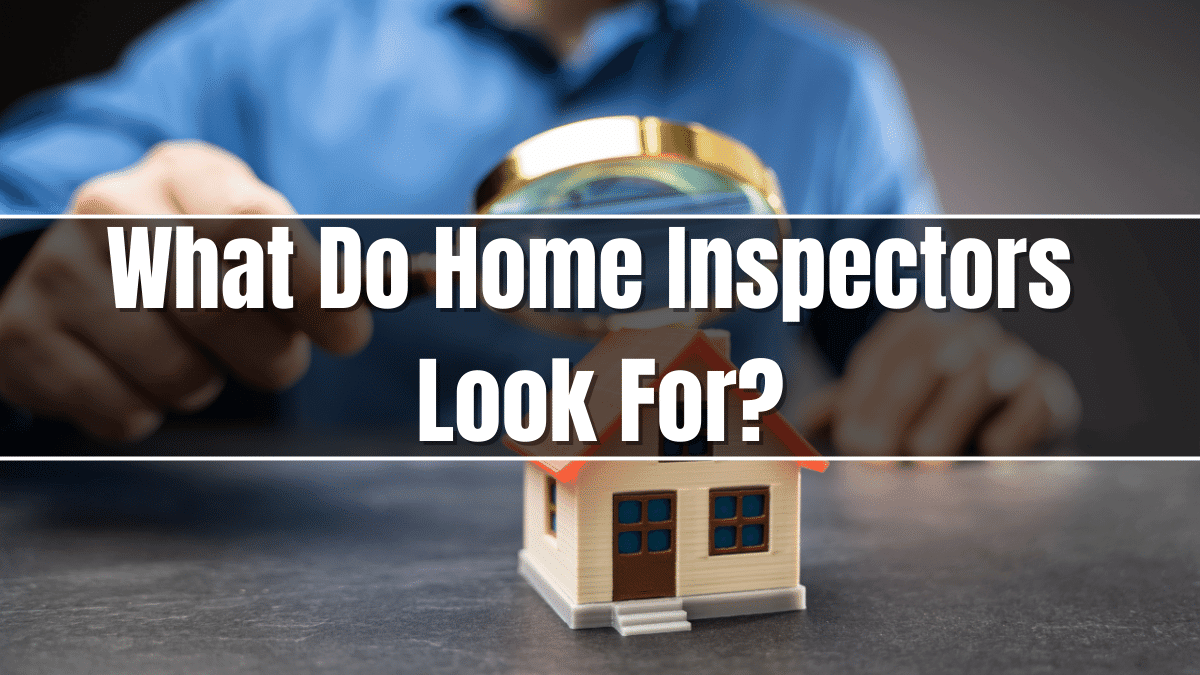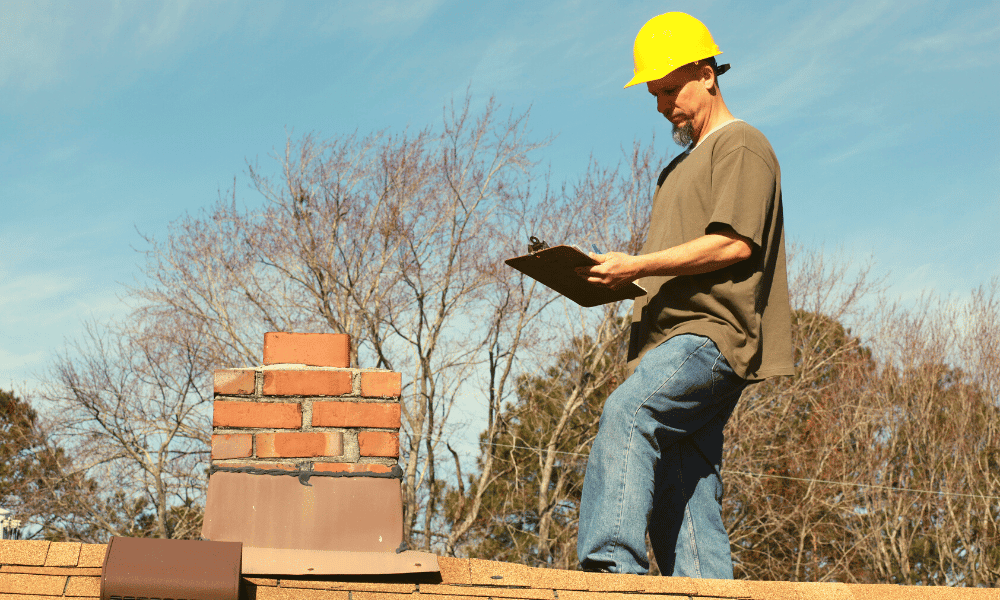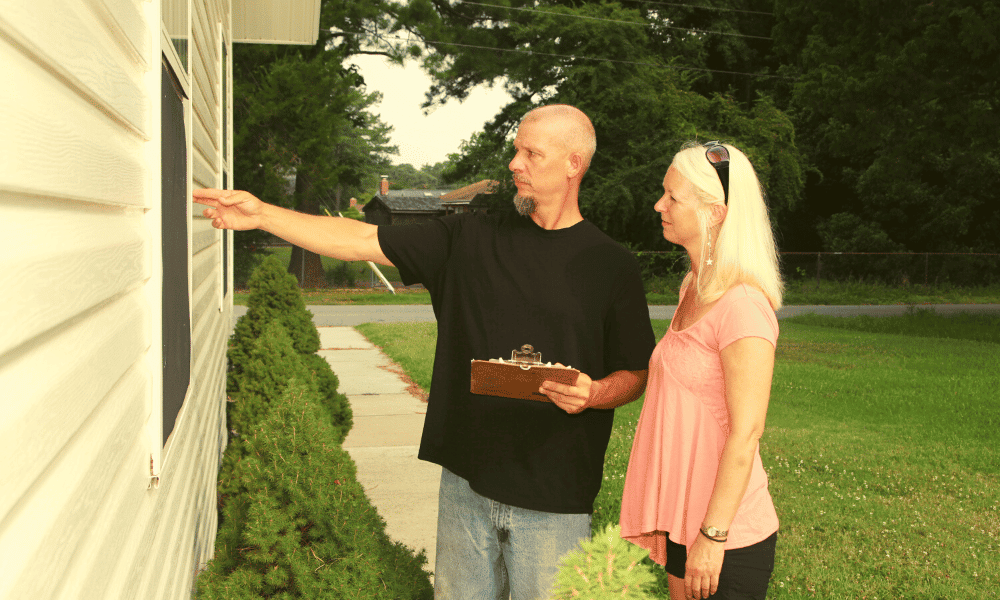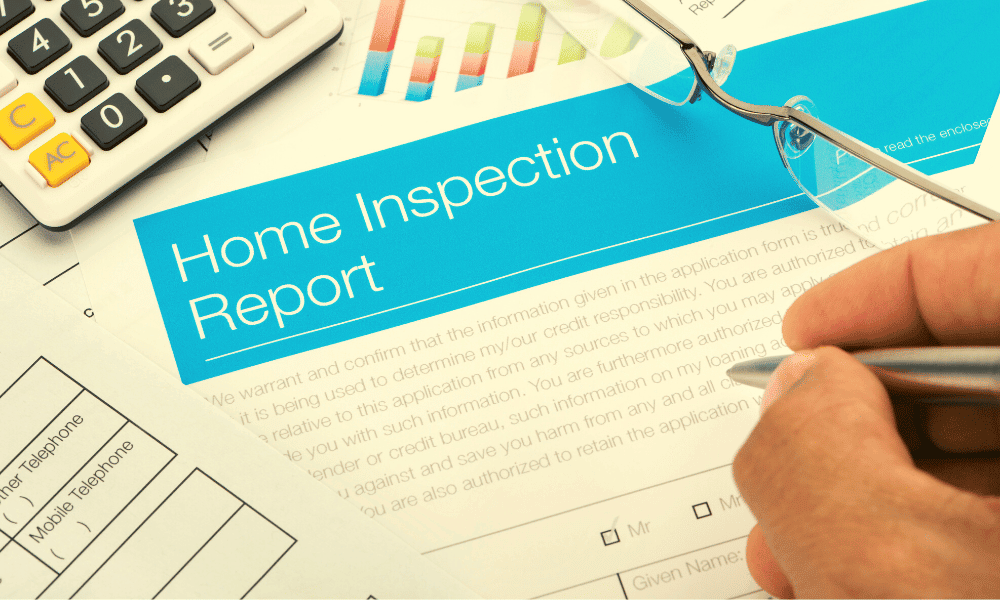What are Home Inspectors looking for?
A home inspector will inspect the house for any problems that could be of concern to you as a potential buyer. Sometimes, a home seller may even get a pre-listing inspection to uncover and address any potential problems before the home is on the market. For buyers, the home inspection is the next step after you have signed a contract.
Buyers and sellers can learn the most about safety concerns and major repairs in a home through a home inspection. Even the best home have defects, which is why a home inspection is such an important step to selling a house. Knowing which ones can cause problems in the future is of interest to both buyers and sellers.
Every buyer can benefit from knowing what to look out for in a home inspection report, especially those who are buying a home for the first time. There are many ways to prepare for a home inspector as a seller, and details you should be aware of as a buyer.
This is what you can expect from a home inspector as a buyer or seller. Find out what the inspector is looking for and how to handle any issues found during the inspection.
What is a Home Inspection?
A home inspection is when a qualified home inspector assesses the property’s condition, including its heating and cooling systems, plumbing, electrical work, water, and sewage, as well as some fire and safety issues. Additionally, the home inspector will look for evidence of damage from insects, water, and fire, as well as any other issues that may affect the property’s value.
The home inspection is your last chance as a buyer to find any defects in the property and possibly get the seller to fix them before you close the deal.
Potential buyers may also be able to renegotiate or withdraw from a home purchase if there are serious issues with the property. This is provided that they include a home inspection clause in their purchase agreement.
A home buyer’s contract will often include an inspection clause. This allows buyers to inspect the property and identify any problems before they close on it.
As a seller, you want to be able to anticipate what the inspector will find so that you are prepared and can make sure everything goes smoothly.
Things to look for during a home inspection
- The home inspector will inspect the exterior and interior of the home, including the roof, foundation, plumbing, electrical, and HVAC systems. A written report on the results will be provided by the inspector.
- The average home inspection takes between two and four hours. However, it can take longer depending on how large the house is. The home inspector might take up to two days to complete the written report after the physical inspection.
- Buyers are encouraged to attend inspections so that they can inspect their new home and ask questions. This will give you more information than the inspection report.
Do not be alarmed at the number of defects in your report. Many will be minor and you won’t bother fixing them.
Instead, focus on the seriousness of your home’s problems. Deal-breakers can sometimes be caused by certain problems.
Talk to your real estate agent and your home inspector if serious problems occur.
What are the main things home inspectors look out for?
The American Society of Home Inspectors, (ASHI) has compiled a complete list of the things a home inspector will inspect:
Heating, Ventilation, and Air Conditioning (HVAC), System
First, they inspect the HVAC system of the house. This involves a visual inspection to make sure that the furnace, heat pump, and air conditioner are working properly.
The home inspector will also check for signs of carbon monoxide or gas leaks. They will inspect the systems visually and then check them manually to make sure they are working properly. They will check that the gas or oil furnace lights up properly and heats or cools your home.
Home inspectors will not test heating or air conditioning in summer. This could cause damage to the system and give an inaccurate reading.
Electrical
The first step in inspecting the home’s electrical involves inspecting the wires outside of the home that enters the electrical panel. They will check that no trees or bushes are blocking the wiring. In older homes, they make sure that visible wires are protected with insulation.
All wiring will be underground in newer neighborhoods. The home inspector will inspect the electrical panel and verify that it is wired with circuit breakers rather than fuses. Fuse use is illegal in many parts of the United States.
The home inspector will inspect the size of the main fuse to make sure it is sufficient amps to supply the home’s electrical needs. It should usually be greater than 100 amps.
They will inspect the wiring to make sure that copper wiring is used, not aluminum, that no wires are lost, and that there is no rust in the electrical panel. A test will be done in every wall outlet in the house using a multimeter after completing the electrical panel. They will check the light switches in the house and note any problems.
Plumbing
Home inspectors will inspect all bathrooms, tubs, showers, and sinks. They also check waterlines and pipes. To ensure that toilets work properly, they will inspect the filler mechanisms and flappers.
They will inspect your pipes and hydrants outside your home to ensure they are free from leaks. They will also check the temperature and pipes as well as pressure relief values for all water heaters.
Attic
The condition of insulation in an attic is a key factor in determining the energy efficiency of a home. A home inspector will also inspect the ventilation in the attic. Poor ventilation can lead to excess moisture and mold growth.
To ensure that water damage is not occurring, they will inspect the attic for water stains and damaged insulation. They will also inspect the attic for signs of rust, which is an indication that the furnace has suffered water damage. They will also check for signs of fire damage, such as soot or scorched wood.
The interior of the attic will allow the inspector to assess the roof and framing of your home. This will help determine if the roofing system can withstand high winds.
Roof
The roof should be safe for home inspectors to inspect. This means that it must not be more than three stories high and shouldn’t be too steep. It will not be inspected if it is snowing, raining, or windy.
If they have the ability to inspect the roof they will inspect the flashing and gutters. They will also look for missing or warped shingles.
Walls, Ceilings, and Floors
The home inspector will inspect the ceilings, floors, and walls for discoloration, mold growth, and water damage. They will inspect the walls for cracks, sagging ceilings, and any other structural damage.
The inspector will also inspect for uneven flooring and bulging walls. It is important to remember that inspectors will not make negative remarks about cosmetic items. They will only mark areas of structural damage or areas in need to repair due to safety hazards.
Doors and windows
The inspector will inspect all doors and windows to make sure they work properly. The inspector will identify the type of window in each room, and ensure that every bedroom has at least one operable window.
They will also inspect the doorframes for sagging or imbalance, which could indicate a problem in the foundation.
Foundation
Most home inspectors begin with the exterior of the house and work their way inside to assess the foundation. A chimney that is leaning away from the home, a sunken porch, cracked steps, and cracked foundation walls are all signs of a weak foundation.
If doors or windows are difficult to open or the ceiling or drywall cracks a lot, it could indicate foundation problems. Foundation problems could also be indicated by cracked tiles and lopsided flooring.
The home inspector will inspect the foundation and any other structural elements of the home. The home inspection process is a crucial part of ensuring that the structure of your home is clean and in good condition.
Basement
The inspector will inspect the basement for water damage, just like other areas of the house.
Water damage can be identified by a musty smell, mold growth, water-damaged walls, and uneven flooring. To ensure water doesn’t get in, the inspector will inspect the area around the basement doors and windows.
The home inspector will write a detailed report detailing their findings after the inspection is completed. The inspector will also give information about how to fix the items.
It is clear the inspector won’t take apart your house to check the wiring and piping. The inspector will have more information if he can access the interior and exterior of your home.
Who pays for a home inspector?
A professional home inspection is usually paid for by the buyer. Some buyers insist that the seller pay after they make an offer. This can be negotiated.
Sellers may want to have their home inspected before they list their house. This can help potential buyers feel more confident. It can also give the owner a chance to address issues before the property is advertised.
Not all buyers will accept reports paid for by the seller. Experts recommend that buyers select their own inspectors, one who is not connected to the seller or his Realtor.
What is the cost of a home inspection?
It is estimated that an average house inspection will cost $340. However, it can vary depending on your location and the size of your home from $280 up to $401.
The cheapest inspector may not always be the best, especially if the state does not license them. You should ensure that your inspector is qualified and experienced enough to do a great job.
An ASHI member can provide some assurance about the competence and ethics of your inspector.
Should buyers attend the home inspection?
Why not? Ask your inspector if you’d like to come along. Most inspectors will agree to allow you to come along. Your inspector will allow you to tour your new home and answer any questions.
The home inspection process itself can provide a lot more information than just reading the report. It can also give you an idea of how serious or minor each issue might be.
What can sellers expect from a home inspector?
As a home seller, it is in your best interest to make sure that you have quick and easy access to all the information on your home inspection checklist. These are just a few ways that you can help:
- Leave keys (for instance, for your electrical panel), and label where the inspector can find them
- For inspection purposes, make sure that all pilot lights for furnaces and fireplaces are turned on, even in the summer.
- Make sure your basement is tidy. You must have a clear path down the steps to get to your furnace/HVAC/water heater or any other items that need an inspection.
- Make sure your attic is as tidy as your basement
- Clean up areas in your yard that could make it difficult for the inspector to access your crawl space, drainage access points, or septic tank.
- Make sure the utilities are reconnected if the house is empty and vacant.
Although being helpful doesn’t guarantee a better report or a higher quality product, professionals appreciate your thoughtfulness.
Do sellers need to make repairs prior to the home inspection?
A home inspection checklist is a useful tool for selling a home. You can avoid minor problems by knowing what the inspector will be looking for.
Nobody can expect perfection. It is rare to find a home inspection report that is clean and clear. It could be that you have already resolved some issues and the price has been adjusted accordingly.
Cherry-picking small, simple, and affordable problems can dramatically reduce the number of defects found in a report. The shorter the list, the greater your chances of closing the sale without any issues.
How to get a better report from your home inspector
Home inspectors who are certified are also people. They associate a clean, pleasant-smelling home with those who care for their property, just like everyone else. This will make the inspection go smoothly.
You have probably just recently decorated your home to show it and it is in near-perfect condition. You should be looking for any new problems. Get them fixed as soon as possible if a shingle or pane of glass has cracked.
Also, if your furnace or HVAC is temperamental or is overdue for maintenance, get it professionally serviced.
You may not have the funds to invest in expensive projects at this time. You might consider any quick wins that are available. Your buyer will likely try to get a lower price by leveraging any inspection reports that have negative marks. You never know what you might find. You may even be able to save some money.
The next steps after a home inspection
If there are no obvious or minor problems with the home inspection report, you can continue the home-buying process as normal.
The seller or their Realtor may be willing to provide a list with minor problems to fix. After moving in, you can reduce your to-do list by asking the seller to fix a leaky faucet or replace a missing doorstop.
You may wish to inspect the repairs after they are completed to ensure that all items on your checklist have been fixed.
Serious issues from the home inspection must be addressed
If the home inspector finds safety or structural problems, you will need to decide whether you should buy the home.
You will need the following if you do move forward:
- Additional inspections: Home inspectors do not have to be experts in every aspect of home construction. To assess the condition and determine the cost of repairs, a specialist like a structural engineer will need to inspect the house.
- Negotiating: As a condition of purchasing the home, you will need to ask for repairs. If you are willing to buy the home as it is, the seller might agree to lower the price. The seller might agree to correct the problem before closing
- Follow up: Call the specialist who diagnosed the problem and have them come back to inspect the quality of the repairs.
Use the home inspection report to guide your home improvements
You can get valuable information from a home inspection before buying a house. They can also help you make the right decisions after closing. The home inspection report can be used as a guide for scheduling and planning future repairs.
If, for example, the HVAC system is 15 years old with an inefficient blower and as noted in the report, it’s time to plan ahead for the replacement of the HVAC system within the next few years.
Your home inspection can help you determine the level of protection you need to purchase a home warranty. You can choose which parts of your home you want to be protected by some warranties. The most vulnerable systems in your home should be inspected.
What should I do about the defects in my home inspection report?
Many reports list many defects. Some lists of defects can reach three figures. This is because there is no perfect home, especially when the property is only a few decades old.
Do not worry about how long the inspector’s list is; instead, focus on the severity of the problem.
Many problems, such as cracks in the driveway or loose doorknobs, are so minor that you won’t bother to fix them immediately, even though they’re obvious.
However, there are some issues that can prove to be a deal breaker: issues with the home’s physical structure, safety issues like lead pipes, improper installation of furnaces or water heaters, and others.
If you find these issues, talk to your real estate agent and home inspector about the best way forward.
Home inspection vs. home appraisal
To assess the property’s value, mortgage lenders will require a home appraisal. A home appraisal is required as part of any borrowing process.
However, this appraisal won’t reveal any specific information about the condition of your home. Home appraisals will focus more on the location, size, and general condition of the home.
The appraiser is not like a home inspector and will not climb on the roof to look for problems.
Final thoughts on home inspections?
A professional home inspection is a great idea, regardless of whether you are a first-time homebuyer or an experienced one. A quality home inspector can help a homeowner address important issues before being listed on the market as well as help a home buyer from purchasing a home with problems.
Fortunately most home will have only minor issues that can be addressed quickly. However, major issues, such as a cracked slab, can be uncovered during the home inspection process.
To get personalized assistance for your home-buying goals, including rate quotes, homeownership advice, and other services, contact your realtor today.













